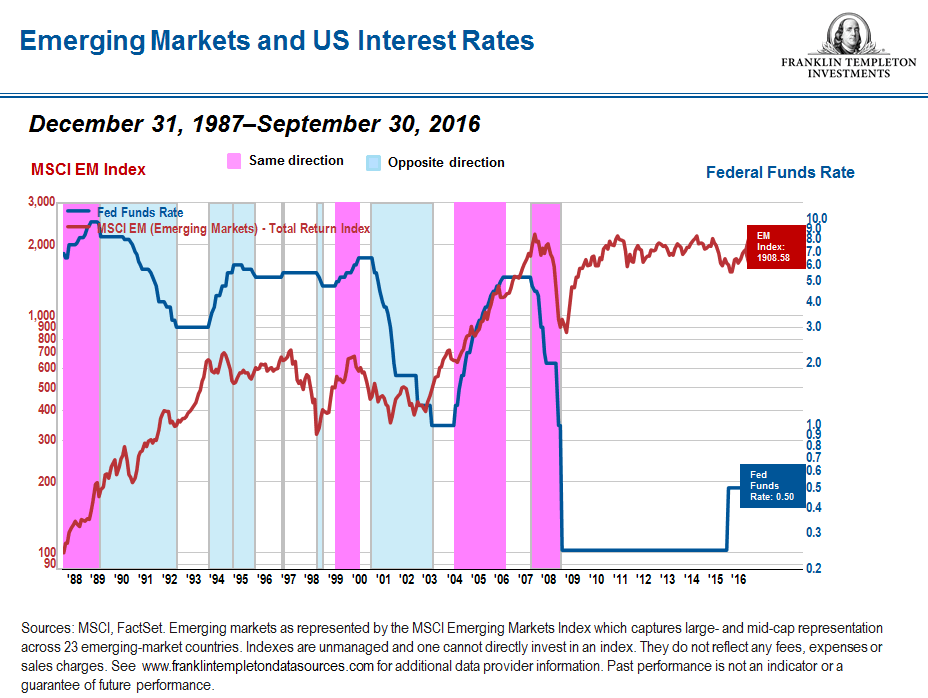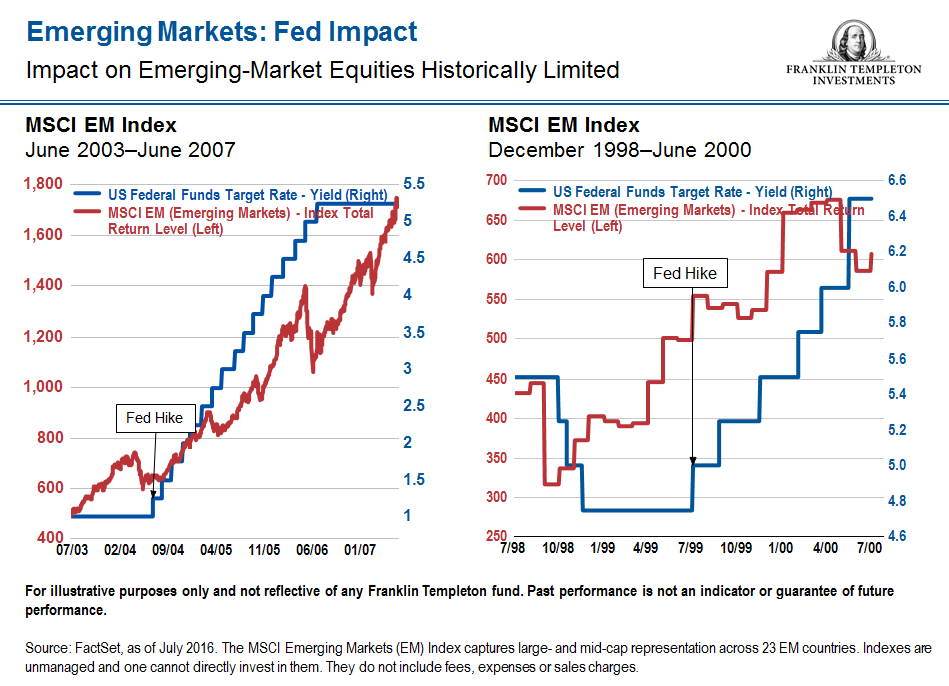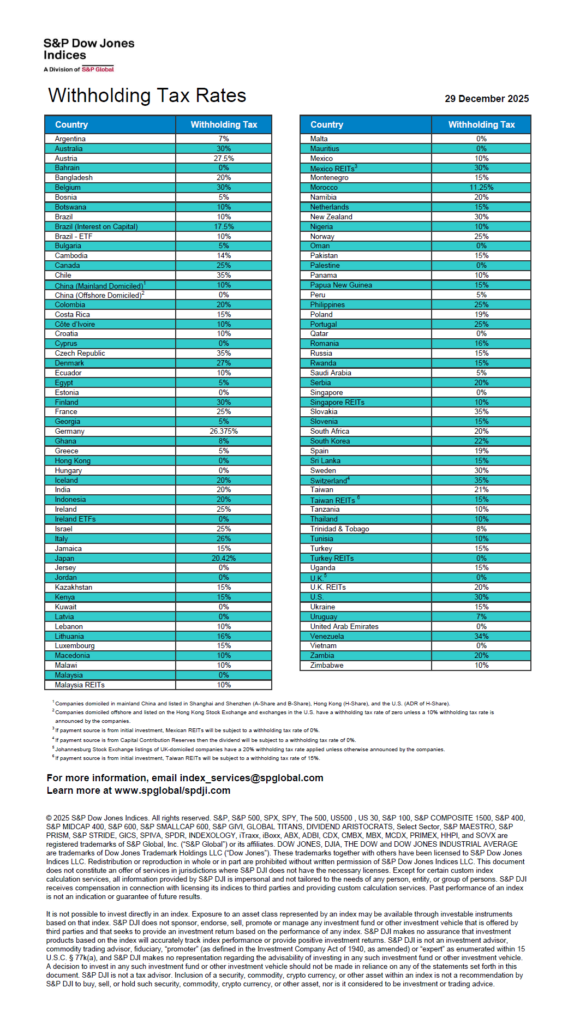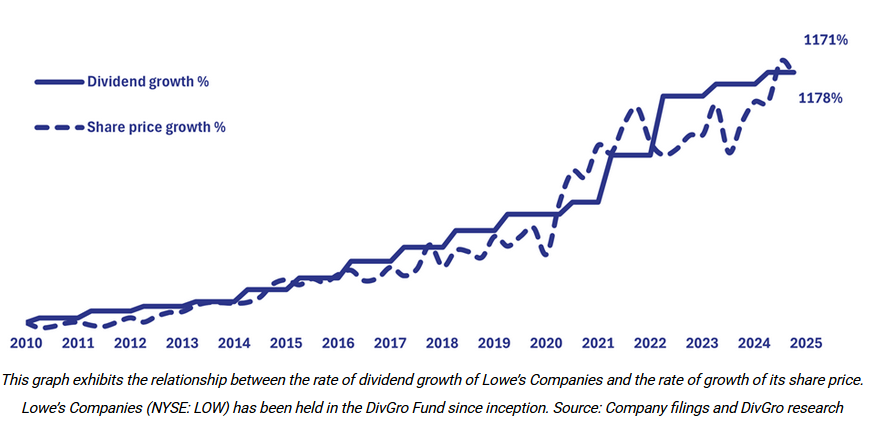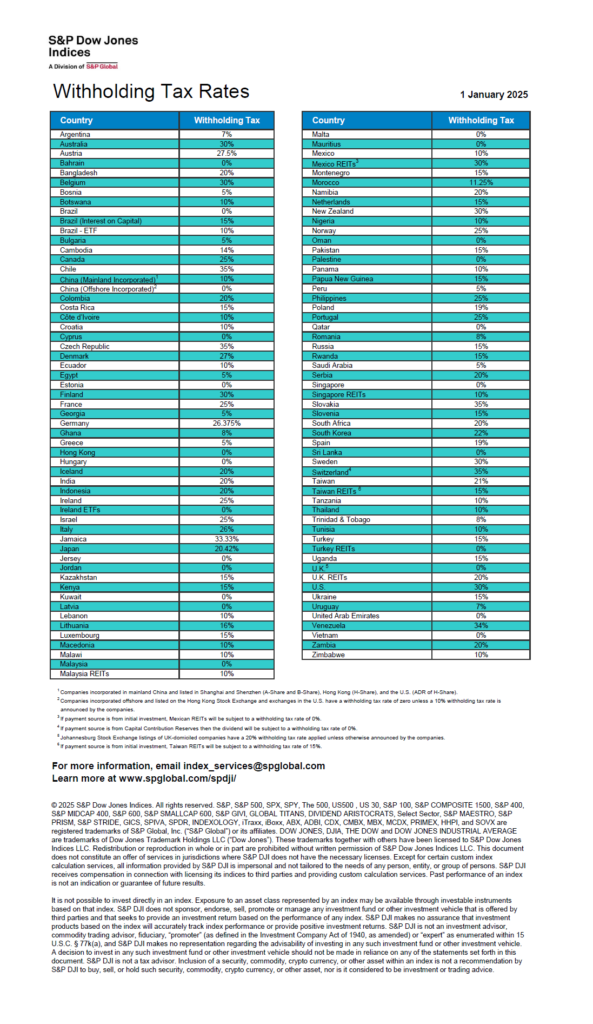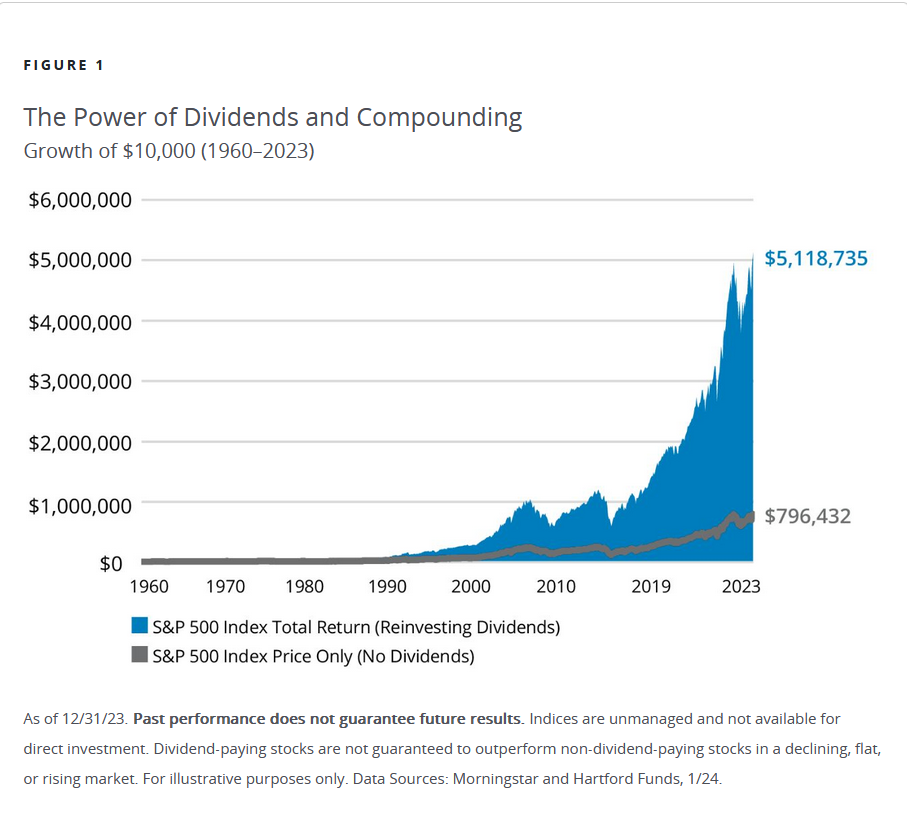Emerging equity markets were performing well this year until the US elections. But the outcome of the election adversely impacted these markets. Now with the election of Trump returns in many emerging markets have reversed course and lost much of the gains made year-to-date. Below is the YTD returns of select emerging market indices:
- China’s Shanghai Composite: -7.8%
- India’s Bombay Sensex: 0.8%
- Brzail’s Sao Paulo Bovespa: 42.0%
- Russia’s RTS Index: 34.5%
- Mexico’s IPC All-Share: 5.5%
- South Africa’s Johannesburg All Share: 0.005%
Source: WSJ
Another factor that caused the decline in these markets is the expected increase in US Federal interest rates. Raising rates are bad for developing economies for many reasons. The below excerpt from an article discusses two reasons:
Borrowing costs
When the U.S. Federal Reserve lowered interest rates back in 2008, borrowing U.S. dollars became cheaper and many emerging markets took out loans in this currency to pay for projects such as building new infrastructure, in an attempt to boost their own economies. With lower interest rates came cheaper repayments. When the Federal Reserve raises interest rates, this could make the repayment of these loans more costly – so emerging market economies may suffer as a result.
Commodity prices
In addition, many emerging market economies are big commodity producers (i.e. agricultural products like coffee, or natural resources, like oil and gold). Most globally traded commodities are bought and sold in U.S. dollars, so the value of the U.S. dollar matters. Rising rates could make the U.S. dollar stronger, which in turn would make other currencies relatively weaker and may push down commodity prices. This is bad for countries which sell more commodities than they buy because less money flows into the country as a result.
Source: Why do US interest rates impact emerging markets?, iShares UK
From another recent article in Investment News:
Emerging markets have been sinking since the election of Donald Trump, led lower by Latin America and India.
The average diversified emerging markets fund has fallen 4.4% since the Nov. 9 election, according to Morningstar, vs. a 3.5% gain for the Standard and Poor’s 500 stock index.
While a 4.4% gain is relatively modest, it’s noteworthy because emerging markets were on a tear before the election, soaring an average 13.6%. In contrast, developed markets were pikers. The S&P 500 had gained 6.7% before the election, including reinvested dividends, and the MSCI EAFE index, which measures developed overseas markets, had fallen 3.7%.
Trump’s rhetoric against China and Mexico clearly hasn’t helped emerging markets, said Todd Rosenbluth, director of ETF research for CFRA. Funds that specialize in Mexico have been hit hard since the election. iShares MSCI Mexico Capped (EWW), for example, has tumbled 15.6% since election night.
It’s hard not to blame those losses on the election results. “There’s a lot of speculation out there about emerging markets, but when the central theme of the winning candidate is ‘F Mexico,’ that part isn’t that ambiguous,” said Russel Kinnel, editor of Morningstar Fund Investor.
Source: Emerging markets sink after Trump victory, Investment News. Nov 23, 2016
So emerging market investors may be wondering if these markets always crash when interest rates rise. Or to put it differently – what is the relationship between US interest rates and emerging markets. According to an article by Franklin Templeton Investments, when US Fed funds rate rises there may be short-term volatility in emerging markets but in the long-term they do not necessarily lead to lower performance. So long-term investors need not worry too much about the expected rise in the US interest rate.
The chart below shows the correlation between US Fed Funds rate and emerging markets:
Click to enlarge
Source: Central Banks and Stock Markets: a BOJ Case Study, Franklin Templeton Investments, Nov 22, 2016
Related ETFs:
Disclosure: No Positions
Update:
Emerging Stocks on Fed Interest Rate Increases – Chart:
Source: Focusing on Fundamental Improvement, Franklin Templeton Investments, Dec 13, 2016

